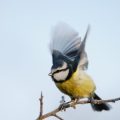Why Regular Avian Health Checks Matter in the UK
For bird lovers across the United Kingdom, caring for a feathered friend goes beyond offering fresh seed and a charming perch by the window. Regular avian health checks are an essential element of responsible pet ownership, especially within the UKs unique environment. The British climate, with its fluctuating temperatures and frequent dampness, can present specific challenges to avian well-being—making proactive health assessments more important than ever.
By scheduling routine check-ups, UK bird owners not only safeguard their pets from common illnesses but also foster a closer bond through attentive care. Early detection of potential health issues allows for timely intervention, often preventing minor concerns from escalating into serious conditions. This approach is particularly vital given that birds are masters at concealing discomfort until ailments become advanced.
The table below highlights some key benefits of regular avian health checks for both birds and their owners:
| Benefit | For Birds | For Owners |
|---|---|---|
| Early Disease Detection | Reduces risk of severe illness | Lowers long-term vet costs |
| Improved Well-being | Enhances quality of life | Brings peace of mind |
| Adaptation to UK Climate | Monitors for weather-related issues (e.g., respiratory) | Helps adjust care routines seasonally |
| Behavioural Monitoring | Identifies stress or discomfort early | Strengthens human-animal bond |
The British Isles offer a beautiful home for companion birds, but only with consistent health monitoring can owners ensure their pets thrive amidst local environmental factors. Whether you have a cheeky budgie in Birmingham or a majestic macaw in Manchester, routine avian health assessments are the cornerstone of a happy, healthy life together.
Spotting Early Signs of Illness: What to Look Out For
As a devoted bird owner in the UK, noticing subtle changes in your feathered friend’s behaviour or appearance can make all the difference. British weather, indoor heating, and seasonal shifts can affect pet birds in unique ways. By observing your bird daily, you’ll be well-placed to catch early signs of illness before they become serious. Here’s what every UK bird owner should keep an eye on:
Common Symptoms to Watch For
| Symptom | Description |
|---|---|
| Fluffed-up feathers | Constant fluffing may indicate your bird is cold, unwell, or trying to conserve heat. |
| Lethargy | Lack of activity or reduced vocalisation, especially if your bird is usually lively. |
| Changes in appetite | Noticeably eating less or rejecting favourite foods. |
| Abnormal droppings | Watery, discoloured, or particularly smelly droppings. |
| Laboured breathing | Panting, tail bobbing with each breath, or open-mouthed breathing. |
Subtle Behavioural Changes
- A normally social budgie suddenly spending more time alone.
- An increase in sleeping during daylight hours.
- Irritability or aggression when handled.
Appearance Cues Unique to UK Homes
- Dull or ruffled plumage due to central heating dryness.
- Over-preening as a reaction to low humidity during winter months.
When to Seek Veterinary Advice
If you observe any combination of these symptoms persisting for more than 24 hours, it’s best to consult an avian vet. Birds are masters at hiding illness, so trust your instincts and act quickly—early intervention is key to ensuring your pet bird stays happy and healthy in your British home.

3. Essential Tools and Best Practices for At-Home Bird Checks
For British bird owners, carrying out regular at-home health checks is an integral part of ensuring your feathered companions remain in tip-top shape. With the right tools and gentle techniques, you can confidently monitor your bird’s wellbeing between visits to your avian vet. Below is a practical guide to the essential items and best practices tailored for UK homes.
Must-Have Tools for Avian Health Checks
| Tool | Description | Where to Find in the UK |
|---|---|---|
| Small Towel or Bird Restraining Cloth | For safe and secure handling without causing distress | Most pet shops or online (e.g., Pets at Home, Amazon UK) |
| Digital Weighing Scales | Essential for monitoring weight fluctuations, which can indicate health issues | Kitchens shops or online retailers |
| LED Torch (Mini) | Helps check feet, beak, and under feathers for abnormalities | DIY stores or online outlets |
| Nail Clippers (Bird-Specific) | For trimming overgrown nails with precision and safety | Specialist pet suppliers or avian vets |
| Notebook or Digital Logbook | Keeps records of observations, weight, and dates of checks | Stationery shops or digital apps (UK-based options available) |
Best Practices for Gentle Handling at Home
- Create a Calm Environment: Choose a quiet room with natural daylight; avoid draughts and sudden noises.
- Use Soft Voices: Speak gently to reassure your bird throughout the process.
- Towel Technique: Use a soft towel to gently wrap your bird, leaving the head exposed. This minimises flapping and stress.
Sensible Steps During Your Check-Up
- Wash your hands thoroughly before handling your bird.
- Observe your bird’s behaviour in its cage first – look for signs of lethargy, unusual posture, or changes in droppings.
- Cautiously remove your bird from its cage using the towel technique if necessary.
- Inspect eyes, beak, nostrils, feathers, feet, and vent area using good lighting.
A Note on Safety
If you notice anything concerning—such as laboured breathing, bald patches, or unusual lumps—contact your local avian vet immediately. Remember: regular gentle checks at home are not a substitute for professional veterinary care but are an excellent way to keep track of subtle changes in your bird’s health within the comfort of your British home.
4. Finding an Avian Vet: Navigating UK Veterinary Services
When it comes to ensuring the health and happiness of your feathered companions, finding a qualified avian vet is paramount. Not all vets in the UK have specialist knowledge in avian medicine, so it’s essential to do a bit of research before entrusting someone with your bird’s care. Here’s how you can locate the right professional and prepare for your visit.
How to Find a Qualified Avian Vet
The British Veterinary Association (BVA) and the Royal College of Veterinary Surgeons (RCVS) are excellent starting points for your search. Use their online directories to filter by specialism—look for vets who list ‘avian medicine’ or ‘exotic pets’ as areas of expertise. Recommendations from local bird clubs or reputable breeders can also be invaluable, as these communities often have first-hand experience with avian practitioners.
Checklist: What to Look for in an Avian Vet
| Criteria | Why It Matters |
|---|---|
| RCVS Membership | Ensures vet meets UK professional standards |
| Avian/Exotics Experience | Specialist knowledge of bird-specific health issues |
| Accessible Location | Reduces travel stress for you and your bird |
| Emergency Services | Availability for urgent care outside normal hours |
| Positive Reviews/Recommendations | Reflects consistent, quality care from other bird owners |
Preparing Your Bird for a Vet Visit
A trip to the surgery can be a daunting experience for any pet, but birds are especially sensitive to changes in routine and environment. To ensure a smooth visit:
- Use a Secure Carrier: Opt for a well-ventilated travel cage lined with familiar bedding or perch covers to help your bird feel safe.
- Avoid Sudden Diet Changes: Stick to your bird’s regular feeding schedule on the day of the appointment.
- Bring Medical Records: If this is not your regular vet, take along any previous health records or details about your bird’s diet and behaviour.
- Minimise Stress: Cover the carrier lightly with a cloth during transport to reduce visual stimuli and noise.
- Plan Ahead: Book appointments during quieter times of day and allow extra time for travel within busy city centres or rural areas where practices may be further apart.
Your Avian Care Journey in the UK
Navigating veterinary services might seem overwhelming at first, but with careful planning and the right resources, you’ll find expert support tailored to your bird’s unique needs. Building a relationship with a trusted avian vet ensures peace of mind and lays the foundation for lifelong avian wellbeing.
5. Seasonal and Environmental Considerations for UK Bird Owners
Living in the UK means your pet birds experience ever-changing weather, fluctuating daylight hours, and the unique quirks of British homes. It’s essential to adapt your avian health checks and daily routines to suit these seasonal shifts, ensuring your feathered companions stay healthy and happy year-round.
Adapting to the British Seasons
Unlike tropical climates, UK weather can be unpredictable—from chilly winters with central heating to bright but brief summer days. Each season brings its own considerations for bird care:
| Season | Key Considerations | Recommended Actions |
|---|---|---|
| Winter | Low temperatures, reduced daylight, dry air from heating | Monitor for drafts; use a humidifier if needed; adjust lighting to mimic natural day length; check for signs of respiratory stress |
| Spring | Allergy season, moulting begins, increased daylight | Increase cage cleaning frequency; provide bathing opportunities; monitor diet as activity levels rise; watch for allergy symptoms |
| Summer | High temperatures (occasionally), long daylight hours | Avoid direct sunlight exposure; ensure fresh water is always available; provide shade or cool spots in the home; watch for overheating signs |
| Autumn | Darker evenings, cooler air, moulting continues | Sustain vitamin-rich diet to support feather regrowth; gradually adjust lighting schedules; monitor for lethargy or mood changes due to less sunlight |
Typical British Household Settings & Their Impact on Birds
The layout and features of UK homes—such as double glazing, radiators, and varying insulation—can affect your bird’s wellbeing. For instance, placing cages too close to windows may expose birds to cold draughts, while proximity to radiators can create overly dry conditions. Humidity is particularly important during winter months when central heating is commonly used.
Daylight Hours: Managing Light Exposure in the UK
The UK’s pronounced seasonal variation in daylight can impact your bird’s circadian rhythm and overall mood. Using full-spectrum lamps during winter can help replicate natural sunlight, supporting both physical health and mental stimulation. Aim for 10–12 hours of light each day to maintain a consistent routine.
Top Tips for Seasonal Health Checks:
- Temperature Monitoring: Use room thermometers to keep your bird’s environment within 18–22°C.
- Humidity Control: Maintain humidity at around 50–60% using bowls of water or a humidifier if necessary.
- Cage Placement: Avoid draughty spots and direct heat sources; choose a well-lit but stable location.
- Mental Stimulation: Rotate toys and perches more frequently during darker months to prevent boredom.
- Nutritional Adjustments: Offer more vitamin supplements and fresh produce during moulting periods or when activity levels increase in spring and summer.
Tailoring your care routines with these seasonal and environmental factors in mind will help ensure your bird thrives whatever the British weather brings.
6. Building a Long-Term Health Care Routine
Establishing a consistent and supportive health care routine is essential for every UK bird owner who wishes to ensure their feathered companion thrives for years to come. The British climate, with its seasonal shifts, combined with the specific needs of pet birds, means that regular check-ups and thoughtful daily habits are crucial. Below you’ll find strategies and tools tailored for the UK context, helping you to create a holistic wellness plan that’s as charming as it is practical.
Setting Up a Regular Health Check Schedule
Consistency is key when it comes to avian health. Begin by scheduling annual vet visits with an avian specialist, ideally one registered with the Royal College of Veterinary Surgeons (RCVS). Supplement these with monthly at-home examinations and weekly routines that include weight monitoring and observation of feather, beak, and claw condition. A structured timetable not only ensures nothing gets overlooked but also integrates seamlessly into your everyday life.
Example of a Bird Care Routine Table
| Frequency | Task | Purpose |
|---|---|---|
| Daily | Observe behaviour, check water and food bowls, clean cage | Spot changes early, maintain hygiene |
| Weekly | Weigh your bird, inspect feathers and claws | Monitor subtle health trends |
| Monthly | Record weight and behaviour notes in logbook/app | Track long-term changes |
| Annually | Visit avian vet for comprehensive check-up | Professional assessment and vaccinations if required |
Record-Keeping: The British Way to Stay Organised
A classic British touch to bird care is meticulous record-keeping. Use a dedicated notebook or opt for digital tools such as apps designed for pet owners in the UK—many are now available with features tailored to exotic pets. Record your bird’s weight, appetite, droppings, moult patterns, and any behavioural quirks. This archive will be invaluable for both you and your vet should any issues arise.
Tidy Tips for Effective Record-Keeping:
- Date everything: Ensure each entry is clearly dated for easy reference.
- Add photos: Snap pictures during monthly checks to visually document plumage or injuries.
- Create reminders: Use smartphone calendar alerts set to ‘British Summer Time’ or ‘Greenwich Mean Time’ so you never miss a check-up.
- Store paperwork safely: Keep vaccination records and vet notes in a waterproof folder near your bird supplies.
Nurturing Positive Routines for Lifelong Well-being
Your bird will thrive on gentle consistency. Make health checks part of your daily interaction—perhaps after morning tea or before settling in for the evening news. Use positive reinforcement with favourite treats or cheerful words in your best BBC accent. As time goes by, these moments become bonding rituals that foster trust and relaxation.
A Final Word: A British Approach to Avian Wellness
Caring for a bird in the UK is a rewarding journey filled with small rituals and mindful habits. By establishing structured routines, keeping thorough records, and approaching each day with gentle curiosity, you’ll build a foundation of well-being that supports both you and your beloved companion through every season.

